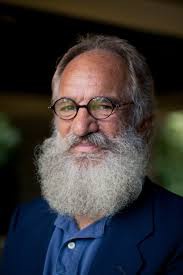J. Daryl Charles, Ph.D., is the Acton Institute Affiliated Scholar in Theology & Ethics and a contributing editor of Providence: A Journal of Christianity and American Foreign Policy and the journal Touchstone. Charles is author, co-author, or editor of twenty books, including most recently (with Eric Patterson) Just War and Christian Traditions (University of Notre Dame Press, forthcoming), Our Secular Vocation: Rethinking the Church’s Calling to the Marketplace (B&H Academic, 2022), Wisdom and Work: Theological Reflections on Human Labor from Ecclesiastes (Cascade Books, 2021), Wisdom’s Work: Essays on Ethics, Vocation, and Culture (Acton Institute Press, 2019), (with Mark David Hall) America and the Just War Tradition: A History of U.S. Conflicts (University of Notre Dame Press, 2019), Natural Law and Religious Freedom (Routledge, 2018), (with David D. Corey) The Just War Tradition: An Introduction (ISI Books, 2012), (with David B. Capes) Thriving in Babylon (Pickwick, 2011), and Retrieving the Natural Law: A Return to Moral First Things (Eerdmans, 2008). Charles has taught at Taylor University and Union University, served as director of the Bryan Institute for Critical Thought & Practice, was a 2013/14 visiting professor in the honors program at Berry College, and served as a 2007/8 William B. Simon visiting fellow in religion and public life at the James Madison Program, Princeton University, as well as the 2003/4 visiting fellow of the Institute for Faith and Learning, Baylor University. The focus of Charles’ research and writing is religion and society, Christian social ethics, the just war tradition, and the natural law. Prior to entering the university classroom, Charles did public policy work in criminal justice in Washington, DC.



